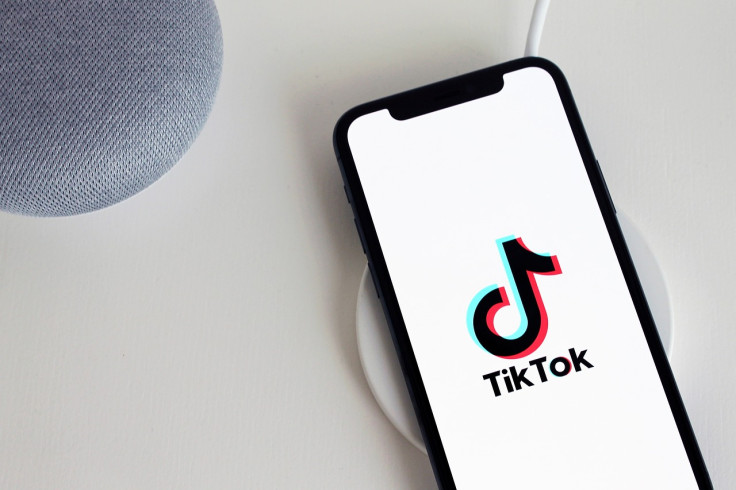First the US, Now Canada? TikTok Faces Shutdown — Will Canadians Lose Access to the App?
TikTok's security solution proposals and legal challenges against a shutdown are currently failing

After facing a potential ban in the United States, attention has now turned to Canada, where the widely popular video-sharing app TikTok's future is now in jeopardy.
Will Canadians soon be unable to scroll through their favourite videos and connect with creators? The possibility of a TikTok shutdown in Canada raises significant questions for millions of users and the broader digital landscape.
TikTok's Crossroads in Canada
TikTok is currently attempting to engage with Canadian officials, proposing security measures that could prevent the popular video application from being forced to cease its operations within the nation.
According to Steve de Eyre, TikTok's director of government affairs for Canada, in a recent interview, their attempts to open discussions have been unsuccessful thus far. He stated, 'We are still looking to get to the table.'
The Canadian Conundrum for TikTok
In the month of July, TikTok, a platform owned by the Chinese company ByteDance, began halting its expenditures on cultural initiatives and sponsorships. This action comes after a November order to shut down its Canadian division, a directive issued due to national security concerns.
/2 In 2024 alone, TikTok supported a combined total of $2.3 billion to Canada's economy and 19,250 FTEs across its operations and small business activities on the platform.
— TikTok Canada (@TikTokCanada) June 23, 2025
[2/2] The federal shutdown order is forcing us to end these programs and cut hundreds of local jobs. This doesn't benefit Canadians. There is a better solution available to Minister @melaniejoly that protects security, retains Canadian jobs and grows cultural investment.
— TikTok Canada (@TikTokCanada) July 8, 2025
Notably, the TikTok app is expected to remain available for Canadians to download and use. De Eyre stated that 'time is running out,' though the company chose not to disclose its specific deadline. TikTok, for its part, has taken legal action to dispute the order.
On 2 July, TikTok's CEO, Shou Zi Chew, formally contacted Industry Minister Melanie Joly to request an urgent in-person meeting, hoping to convene within the following fortnight.
According to a copy of the letter obtained by Bloomberg, he wrote: 'The windup process is rapidly approaching a critical juncture where, unless you intervene, TikTok will be forced to fire all of its Canadian employees, in addition to discontinuing investment and assistance for creators.'
TikTok CEO Shou Zi Chew wrote Industry Minister Mélanie Joly a letter requesting an urgent in-person meeting to discuss the government’s ordered shutdown of TikTok Canada — but his request has so far gone unanswered.https://t.co/h1Ca6Yc25K pic.twitter.com/VrnCJisDeF
— Mickey Djuric (@MickeyDjuric) July 14, 2025
De Eyre verified the details of the letter, adding that the company has not yet received an official reply.
Global Solutions: Data Security Models
In response to concerns in other nations, TikTok has established systems designed to isolate user data, preventing its transmission to China. These initiatives were named Project Texas in the United States and Project Clover in the European Union.
When asked if TikTok has proposed a similar initiative for Canada, perhaps dubbed 'Project Maple,' de Eyre responded: 'Maybe it would be Project Maple. But we need to sit down, understand the concerns that Canada has, and we want to build a solution that would provide greater data security, greater oversight and accountability where there are these concerns.'
To address ongoing concerns in the United Kingdom, TikTok appointed a British company to conduct an independent audit of its data management and security safeguards.
TikTok's Canadian Footprint: Operations and Users
According to TikTok, Canadian user data is kept in the United States, Ireland, Singapore, and Malaysia. The company has also reported paying C$340 million (approximately £184.95 million) in Canadian taxes between 2019 and 2024. Furthermore, it employs some 350 individuals in its Toronto and Vancouver offices and serves a user base of 14 million Canadians.
Thank you @BradMBradford for visiting @TikTokCanada’s Toronto office to meet our local team - who are an important part of #Toronto’s cultural and media sector, but whose jobs are threatened by the federal government’s misguided TikTok policy. https://t.co/pkVyjPLuqr
— Steve de Eyre (@deEyre) July 14, 2025
'We've had people who have unfortunately left for other opportunities because of this order being out there, and we haven't been able to rehire for those roles because of the order,' de Eyre said.
The Paradox of a Ban: Accountability vs. Availability
He pointed out that the ban was imposed by the previous administration, led by former prime minister Justin Trudeau, 'in a different time,' and that the situation has since evolved in the US, where President Donald Trump has postponed a broader directive for ByteDance to either sell or discontinue the application. Last month, Trump announced he had secured a buyer for the US segment of the business.
De Eyre contends that the irony of Canada's order, should it be implemented, lies in the country forfeiting 'the accountability of having a TikTok entity within Canada's legal jurisdiction, having employees who are directly accountable to parliament and regulators and law enforcement,' despite the application still being accessible.
© Copyright IBTimes 2025. All rights reserved.





















